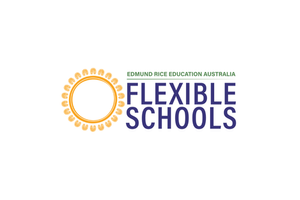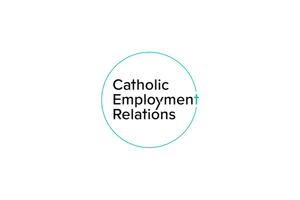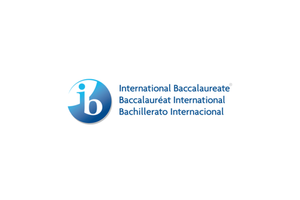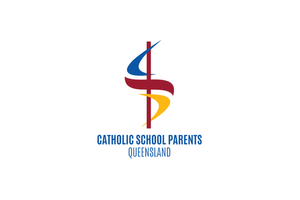Faith, Excellence, Access: Catholic Education brings hope at 2025 Australian Conference
/More than 1,400 Catholic educators, leaders, clergy, parents and other involved in Catholic education from across Australia and overseas gathered in Cairns last week for the 2025 Australian Catholic Education Conference, three unforgettable days of professional learning, celebration and collaboration.
National Catholic Education Commission (NCEC) Executive Director Jacinta Collins welcomed delegates to the largest gathering of Catholic educators in Australia, capturing the spirit of the event.
“The conference showcases the extraordinary quality of our speakers and presenters, whose wisdom and vision will guide Catholic education forward,” Jacinta said.
“What shines through is the deep commitment of our teachers and leaders to ensure every child flourishes.”
The opening session set the tone, with master of ceremonies Philippa McDonald welcoming delegates, followed by a moving Welcome to Country from Professor Henrietta Marrie AM. Students from Our Lady of the Sacred Heart School, Thursday Island and Hammond Island, performed traditional dances.
NCEC Chair Nicholas Moore AO reflected on the national impact of Catholic education, while Assistant Minister for Tourism, Early Learning, Creative Industries and Far North Queensland Bree James MP praised Catholic schools for “lighting the way” and highlighting the partnership between Catholic education and governments at every level.
Sr Nathalie Becquart xmcj, Undersecretary for the General Secretariat of the Synod delivered a stirring keynote, drawing on her experience in Myanmar and Lebanon. She urged schools to embrace synodality, saying it “brings hope at a time when the mission has never been more urgent”.
For Sr Nathalie, Catholic schools should be places where students and teachers learn from each other, gifts are recognised, and authentic relationships come first. Synodality, she said, is both a mission and a “social prophecy” calling schools to be welcoming, dialogical, and bridge-building.
“We must understand that education is a shared journey, where we walk and listen, foster communication and participation,” she reminded delegates.
The conference Eucharistic Celebration, concelebrated by Bishop Joe Caddy AM, Archbishop Mark Coleridge, Archbishop Anthony Fisher OP and other visiting bishops and clergy was a highlight with over 1,000 students including a 400-voice student choir attending from across the Cairns diocese.
Bishop Joe reflected on the role of Catholic educators: “To be instruments of God, creating and fostering environments where every student’s dignity is respected.” He prayed that young people would grow into leaders who “respect human dignity, build bridges, and create a more just and peaceful home for all God’s children”.
An In Conversation session with Archbishop Anthony Fisher OP and Federal Education Minister Jason Clare MP, moderated by Jacinta Collins, highlighted the broader impact of Catholic education. Minister Clare told delegates: “The work everyone here does is the most important in the world. What you are doing as teachers for the next generations of Australians will live on forever.”
Archbishop Anthony reflected on the power of faith and hope: “Hope means you’ll persevere through the hard times. A visionary faith-based hope means we can see real progress in our three strategic priorities, Faith, Excellence and Access. There is so much unrealised potential in Catholic education.”
Across the three days, delegates attended more than 70 keynote addresses, panel discussions, workshops and masterclasses. Key themes included Catholic identity, mission and formation; learning and teaching; leadership and governance; parent, parish and community engagement; resourcing and infrastructure; advocacy and marketing; and more.
Delegates heard from leading education experts throughout the conference. Emeritus Professor, UCL Institute of Education Professor Dylan Wiliam’s keynote Everyone Counts emphasised equity, saying it means “not only lifting achievement but also narrowing the gap between students”. He urged schools to rethink priorities, freeing up teacher time and shifting from “performance to learning, fixed ability to time-to-mastery, linear to adaptive curriculum, and teaching that works for all”.
Education Program Director from the Grattan Institute, Dr Jordana Hunter explored curriculum quality, reminding educators that “teaching and learning is not a simple output machine”. She highlighted the importance of sequenced, knowledge-rich resources with embedded assessment to support high-quality teaching.
Dr Steve Constantino brought a dynamic perspective on family engagement, outlining five simple principles to strengthen school-family partnerships. “Family engagement doesn’t mean more work, it’s the same energy, same resources, different process, different results,” he said. “Family engagement is not an event; it is a process.”
Students were front and centre in the panel Voices that Matter, Actions that Count, where six student leaders from the Diocese of Cairns spoke candidly with Bishop Caddy. They stressed the importance of relationships, where a simple “How are you?” from a teacher could transform a day, and the need to recognise individual learning needs.
Technology, including AI, was discussed as a powerful tool for creativity, support, and future preparation. Their honesty and humour inspired delegates to listen more deeply to students and make meaningful changes in schools.
The conference concluded with Dr Simon Breakspear’s keynote addressing the challenge that AI poses for student learning. He asked educators to pause before considering student use of AI for important learning processes such as summarising and distilling, composing, drafting and redrafting, and evaluation and judgment.
He highlighted that Catholic schools are deeply human communities and appealed for schools to double down on their humanising role and the enduring practices that matter, ensuring that educationalists not the technologists lead the pace and content of education’s adoption of AI.
The conference wrapped up with closing remarks from NCEC Executive Director Jacinta Collins and Catholic Education Diocese of Cairns Executive Director Diarmuid (Durm) O’Riordan.
Durm shared his pride in the students who took part, expressing his hope that “everyone took away the importance of student voice and the power of listening to them”. Jacinta reflected on the wider mission, saying she hoped delegates “took away the value of our community, the strength of our unity, the benefits of a faith-based education, and our capacity to collaborate and be accountable and build cohesion”.
Reflecting on the three days, Jacinta said: “This gathering has reaffirmed the hope, the energy, and the mission of Catholic education. From our bishops and keynote speakers to our inspiring students, we have seen how Faith, Excellence, and Access come together to shape a future where every child can thrive. That is the great strength of Catholic education and together, we will continue to build on it.”
The 2025 Australian Catholic Education Conference closed in a spirit of unity and hope, leaving delegates inspired, re-energised, and ready to carry the mission of Catholic education forward.




































